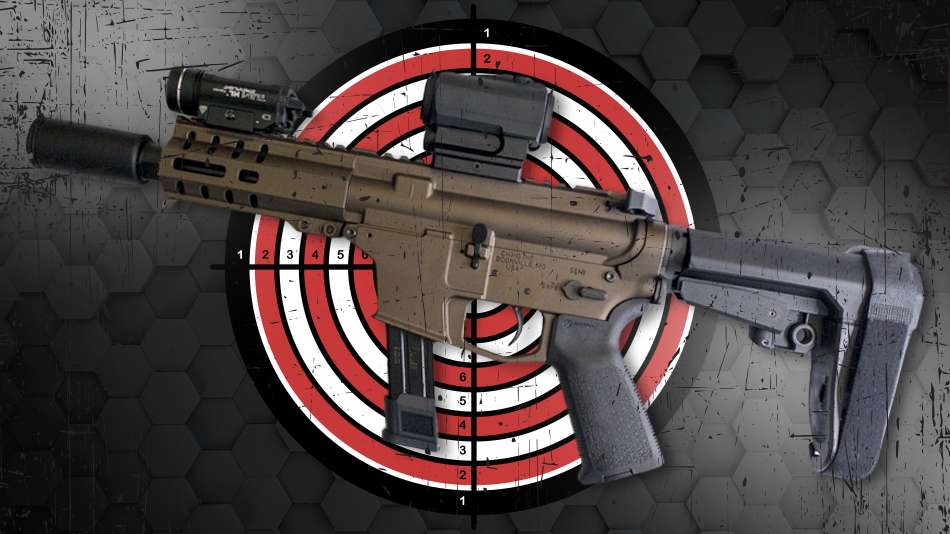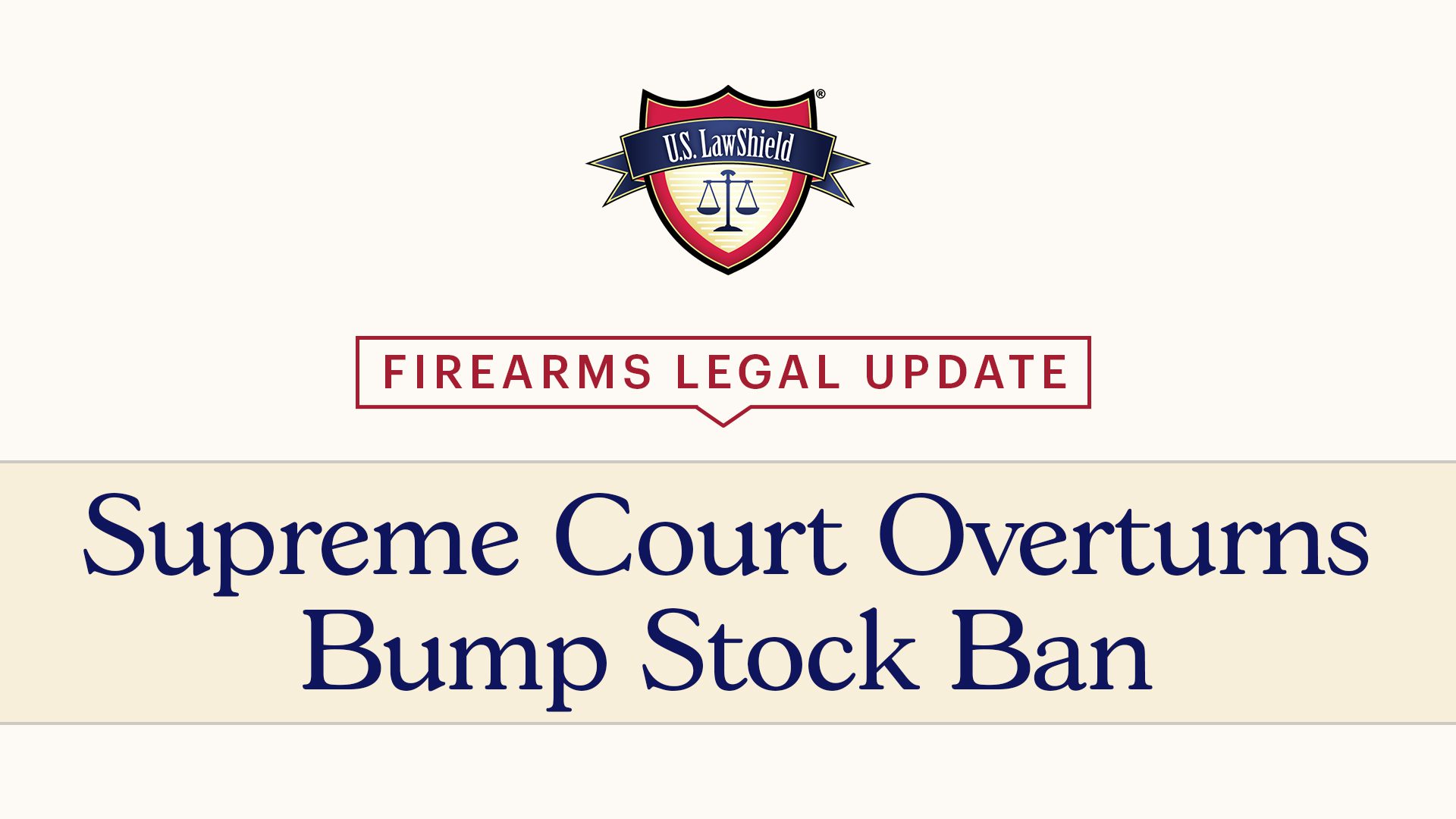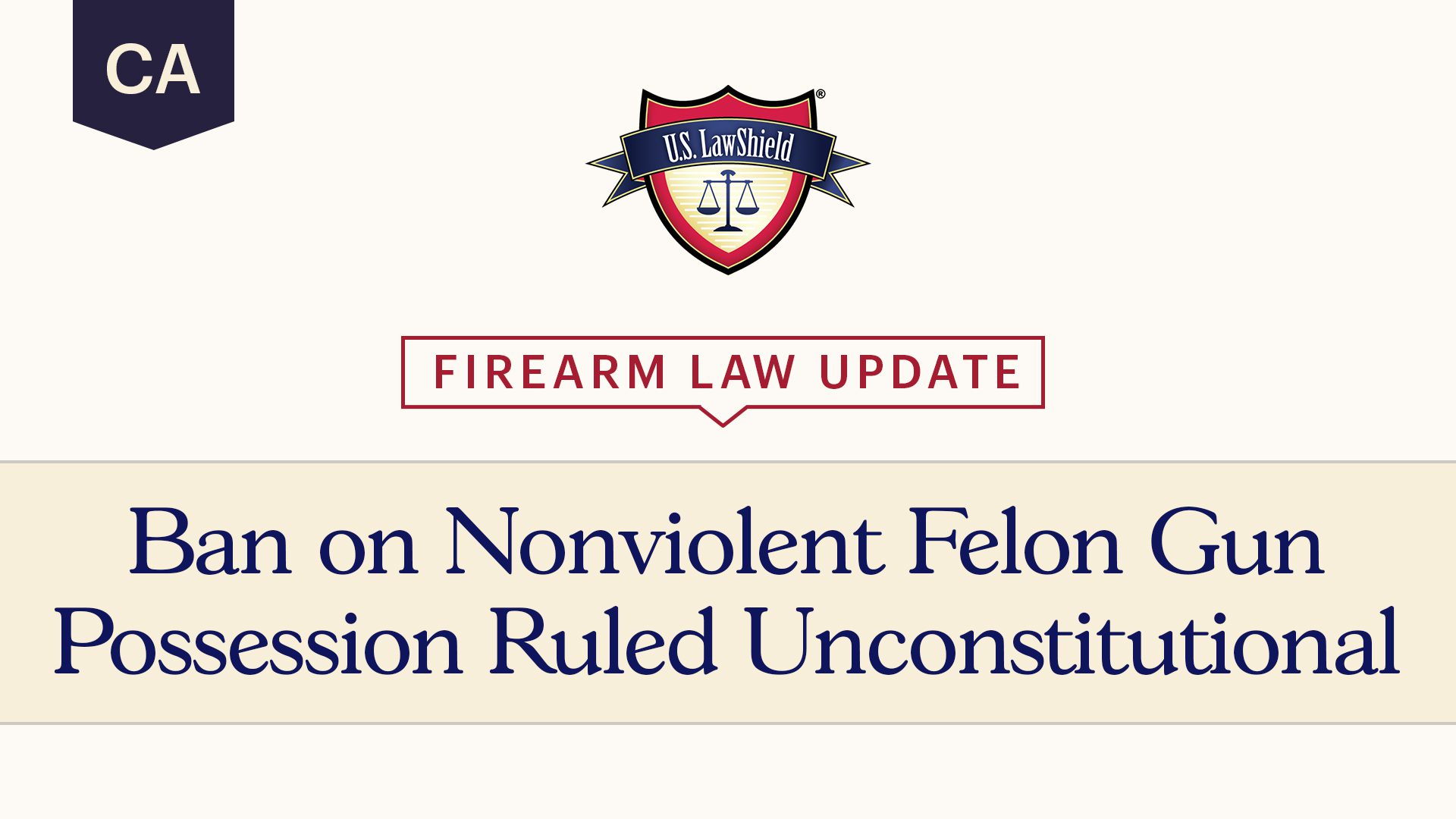
History of the National Firearms Act
All eyes are on the Bureau of Alcohol, Tobacco, Firearms and Explosives (“ATF”) right now. The ATF is the regulatory agency for the firearms industry, which gives it the power to interpret and apply federal laws governing firearms. Two laws of particular importance are the National Firearms Act (“NFA”) of 1934 and the Firearm Owner’s Protection Act (“FOPA”) of 1986. These two pieces of legislation define and regulate the possession of machine guns, short-barreled rifles or shotguns, and suppressors (among others)—commonly referred to as NFA items.
The NFA regulated the possession of certain items thought to be commonly used in gang violence. In 1986, lawmakers further regulated “machine guns” by passing a law forbidding civilian possession of any machine gun not currently in circulation. This meant the number of transferable machine guns that existed on the market was fixed at the number registered and in circulation on May 19, 1986. Other NFA items can still be manufactured and added to the NFA registry. Because of the tight regulations around these classes of weapons, part of the ATF’s job is to interpret the legal definition of what is and is not an NFA item and apply it to thousands of new products coming onto the market.
This Has Happened Before…
Occasionally, the ATF changes the classification of an item from an ordinary firearm to a firearm regulated by the NFA. One of the most recent and high-profile examples of this is the ban on “bump stocks.” When this product was introduced, it was examined by the ATF and determined not to be a “machine gun” as defined under the NFA. But after allegations that a bump stock was used in the 2017 mass shooting in Las Vegas, the Trump administration ordered the ATF to reevaluate this item. As a result, the ATF concluded that attaching a bump stock to a semiautomatic firearm converted the firearm into a machine gun. On March 26, 2019, 90 days after the rule change was published, a once-legal piece of plastic became an illegal machine gun.
The ATF’s Authority
How can the ATF make an item illegal? Congress grants rulemaking authority to many regulatory bodies in this country (think Environmental Protection Agency, Department of Transportation, etc.). This rulemaking authority gives federal agencies the power to create regulations surrounding how laws are interpreted and enforced, and these regulations have the full force of law. This is how the ATF can generally change the law effectively without actually changing the black letter of the statute.
But How Could This Happen?
How might someone come into possession of an unregistered NFA item? The first (and increasingly less common) method is inheritance. It isn’t unheard of for family members of a deceased combat veteran to find a “bring-back” souvenir machine gun when they examine that person’s possessions. Unregistered NFA items, whether they’re suppressors, short-barreled rifles/shotguns, machine guns, or any other NFA item are illegal to possess or transfer and cannot be passed through inheritance. Per the ATF’s website, any such unregistered NFA item found in an estate is contraband and should be surrendered to the ATF.
Enjoying this content? Find out how you can get more sent straight to your inbox.
Be Prepared for Changes
You might be thinking, “Well, I don’t have any illegal weapons, so I’m not worried.” However, the ATF is constantly applying scrutiny to products that are on or will come on the market. This leaves the real possibility that an ATF rule change could make your legally owned weapon or accessory illegal to possess. When the ATF redefined bump stocks from a legal accessory to an illegal machine gun, owners had a 90-day grace period from the officially published notice of change to surrender or destroy their once-legal item. Pistol brace owners are now worried about a similar situation, thanks to recent ATF cease-and-desist letters to SB Tactical and Q Honey Badger requesting the suspension of all manufacture and transfer of pistol braces unless they are registered under the NFA.
Lawyer Up!
What should you do if you think you may be in possession of an unregistered NFA item? It is crucial that you consult an attorney immediately to determine whether you are in illegal possession. Remember: ignorance is not a legal excuse, so consult a lawyer before taking any other step.
The ATF also provides guidelines on what to do in these instances. If the NFA item is legally registered and found in a deceased person’s estate, it can be inherited by that person’s lawful heir. However, as mentioned earlier, if the item is unregistered, it’s contraband and must be surrendered. The ATF’s website recommends contacting a local ATF branch office to arrange a time to surrender the weapon.
Destroy or Turn In
But what if a rule change applies to your weapon? When the ATF banned bump stocks, it gave owners two options: destroy the bump stock or surrender it to the ATF. The agency provided guidelines on how to properly destroy the bump stock via “crushing, melting or shredding the bump stock” so that it was “made incapable of being readily restored to its intended function.” Any ATF rule change to pistol braces will give the public an opportunity for comment. As of the writing of this article, the ATF has withdrawn notice that it will regulate all stabilizing pistol braces through the rulemaking process. If and when the ATF changes a definition of a part, they will announce it on their website. Additionally, the firearms industry media covers these events extensively. You’ll likely find guidance on the National Shooting Sports Foundation’s (“NSSF”) website as well as any number of firearms news websites.
Stay Aware and Prepared
As a regulatory agency, the ATF is continuously updating its definitions of what is and is not legal. The firearms industry is constantly producing new products that must be evaluated, and as you’ve seen, the ATF may initially determine an item does not fall under the classification of an NFA item but later changes course. For more information on how changing ATF definitions could affect you, contact U.S. LawShield and ask to speak to your Independent Program Attorney.
Your Protection Starts Here!
The information provided in this publication is intended to provide general information to individuals and is not legal advice. The information included in this publication may not be quoted or referred to in any other publication without the prior written consent of U.S. LawShield, to be given or withheld at our discretion. The information is not a substitute for, and does not replace the advice or representation of a licensed attorney. We strive to ensure the information included in this publication is accurate and current, however, no claim is made to the accuracy of the information and we are not responsible for any consequences that may result from the use of information in this publication. The use of this publication does not create an attorney-client relationship between U.S. LawShield, any independent program attorney, and any individual.





The only reason a “government” would want to limit what type or style weapon you have is to better be able to run over you when they want to.
For prying eyes, i do not own any firearms, and if I did they were all lost in a boating accident.
Dave, just saw an article about ATF now requiring “floatation devices” to be attached to any firearms in possession during any boating activity. Firearms now “lost” in a boating accident will be a crime. They’re trying to get us any way they can!!!
Yes, let us not mess up our 2nd Amendment Rights!!
I’ll trust all my fellow Americans with full-autos over a politician with a pen. F ’em.
this rule is extremely illogical and won’t even prevent crimes
Living in New Jersey, it’s illegal to own a sling shot. No bull. It’s hopeless here.
Is it illegal to use a Jock Strap instead of a sling?
Is it OK to use a Jockstrap instead of a sling?
Trusts comments would be appreciated
To each his own, as long as they leave my AR 15, and silencer alone I’m OK
At the very least the Feds should have to provide just financial compensation for products made illegal by such such rulings. Isn’t there any legal precedence for this?
Yes, this is what I would like to know! They want to FORCE YOU TO DESTROY YOUR OWN PROPERTY, and not compensate you for it?? And we are the criminals!? This is what you call tyranny folks!
The ATF just banned my gun? What do I do?
I oil it, I grease it up VERY liberally, I wrap it in Plastic, I put it in a plastic wrap, I put that into a heavy PVC tube with cemented endcaps and a bunch of rice to absorb any moisture, and I bury it somewhere on seventy acres.
Then I pray Psalm 144:1.
If you think it is time to hide your guns, then it is time to use your guns.
WOW.
Read Bob G’s comment above. “Living in New Jersey, it’s illegal to own a sling shot. No bull. It’s hopeless here.”
Honest to God truth……I was at the rifle range today……in Southeast South Carolina……. Two guys were on the line. We talked a little politics relative to guns, and commented on the extreme lack of ammo, and prospects for things to improve ANY time soon….. (NADA)………
They were winding up their shooting and getting their gear squared away, I was just getting set up.
As they started to leave, one asked the other where he was from…….. (Local)! NO, I mean where did you move here from? Some county in Northern New Jersey…….Amazing!!!…….the second guy grew up in the same county!!!
Small world, as they say………
ME? I was just relieved to hear yankees that had moved down here wewre apparently NOT bringing rotten yankee ideologies with them. Same thing when I helped in a Republican volunteer effort, most of the volunteers were yankees, I told them it gave me hope to find them on the right side of things. Didn’t help, of course, with Dominion and the cheating Libbercrats.
Learn and practice “Jury Nullification “. The time has come to stop convicting people of gun “crimes”.
As a Juror you are the judge.
Every time I’ve been selected for Jury Duty, I ask the Judge to instruct us concerning Jural Nullification. I’ve learned to hang on to my hat before asking, otherwise I would have to leave it behind as I am jerked out of the room at a speed approaching the speed of sound. Makes my ears go “POP”.
On 1/20/21 We all woke up to a new world. Sadly for all americans including law enforcement who also have been disrespected and let down. The gates of hell have now opened into our country. All law abiding citizens have the right to protect from evil. Hope for the best. Pray for the rest. No one will take my firearms away from me…..
I believe if you hide the weapon and tell ATF it was stolen, you would have had to reported it stolen. If not, expect to be arrested. That’s why US Law Shield is there to inform you. Just sayin’.
The day you think you have to hide your guns is the day you need your guns….
Will the ATF confiscate your AR15 with a WOT or Rare Breed Trigger if your State has no restrictioins against it? Asking for a friend. ;-)
Thats a Dam shame, you must be the other boat i hit when mine went down!!